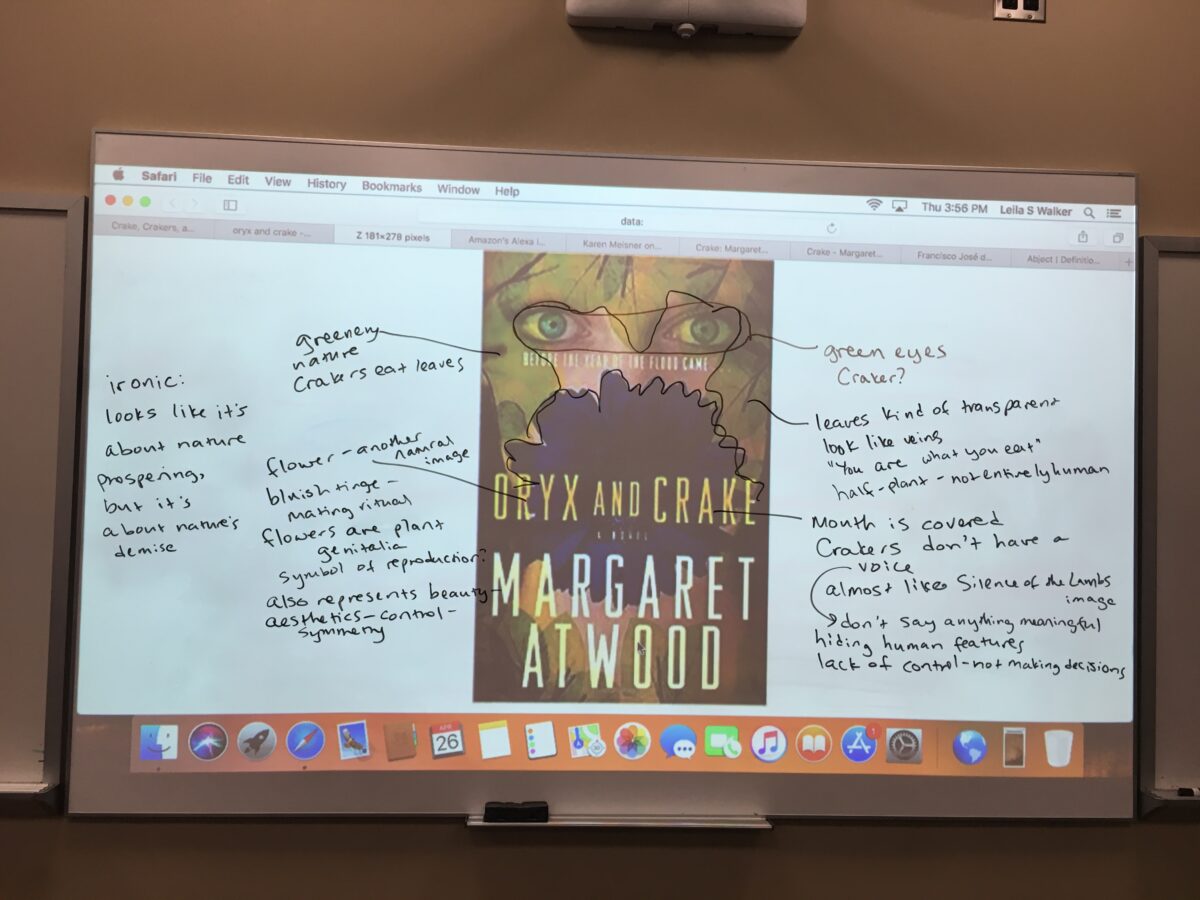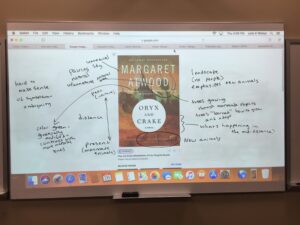The shared Google doc is available here: https://docs.google.com/document/d/1lK9dULA7rAq9bEhxGgDWtSzDbPacLweJziJMQAu6HFs/edit?usp=sharing
Please feel free to add your thoughts!
The shared Google doc is available here: https://docs.google.com/document/d/1lK9dULA7rAq9bEhxGgDWtSzDbPacLweJziJMQAu6HFs/edit?usp=sharing
Please feel free to add your thoughts!



What do these words mean?
Why does Snowman collect them?
What is their significance in the context of the novel?
Group 1: pp. 84-85 “Tomorrow and tomorrow and tomorrow…” OR “sere” and “incarnadine”
Group 2: “cork-nut”
Group 3: p. 148 “mephitic, metronome, mastitis, metatarsal, maudlin”
Group 4: “bogus” and “awesome”
Individual work:
Group work:
Interpreting media
Write down one observation that you made about the text (such as a repeated image, a striking scene, a theme, or even a single word that you think deserves further inquiry).
Write down one question that you have about the text.